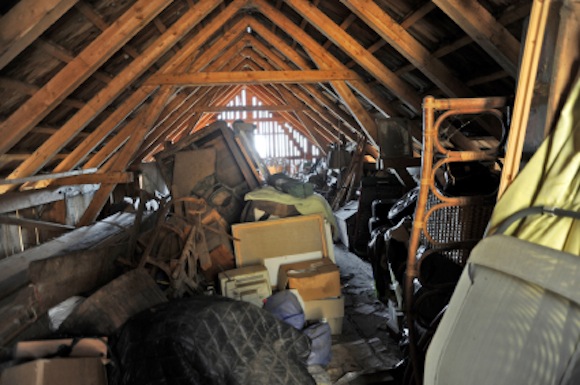Why are they appearing in my house? The autumn pest invasion and our top prevention tips.
/We are well into the throws of Autumn now, the trees are changing colour and just like we dig out our winter jackets, our pesky pest friends are on the look out for warmer and drier accommodation. Our article looks at why they want into our homes, what pests to look out for and what steps you can take to try and prevent them.
What pests should we look out for in the autumn?
In the Dundee, Angus and Aberdeenshire area, the pests that you should be most looking out for are;
Mice & Rats
Squirrels
Spiders
Insects including bed bugs and clothes moths.
Why do they want in our house?
Autumn as we all know is the transition period from the warmer months of summer into winter. The days start to shorten and the temperatures start to drop. In the North East of Scotland we benefit from lovely long days in the summer, but daylight hours are limited in the winter period. This will come of no surprise but this also means that our insect and rodent friends are on the look out for somewhere safe, warm and dry to nest during the colder months.
Spiders and Insects are cold blooded animals, also known as Poikilotherms for the academics out there. What this means is that their internal temperature can vary a great deal. They are also Ectotherms which means that they gain or lose temperature based on their surrounding environment, a hint towards why they move indoors. Research also shows that spiders and insects have an optimum temperature at which they thrive and breed in, effectively our homes can provide a consistent environment in which they can grow their populations.
Mice and rats don’t discriminate, they are looking for food and shelter. Rodents don’t care what size of house you have, if you are rich or poor or whether you live in the country or town. During the colder months they are on the look out for a warm bed with a plentiful food supply available. Mice can typically get their water requirements from the food that they source, where as rats need a far more plentiful supply, if you have nearby stream or even a leaking tap you’re leaving yourself to be far more susceptible.
Squirrels, often looked upon as our cute woodland friend can cause as much damage as rodents. They like to build nests in warm, secure places and the space of a chimney is the perfect size. They have large incisors like rats and will enjoy snacking on your electrical wiring and loft insulation. You’ll also find them hiding in your attic space.
Where should we look out for these pests?
Your home is a welcoming retreat for many of these pests but here are few locations that you will find them more frequently.
Attic space
Around pipes & drains
Wardrobes
Beds
Chimneys
Garages
Kitchen
Garden, especially around the bins
Preventative steps you can take to avoid them taking up home in your property.
Attic space (mice, rats, insects, squirrels)
It is a warm place that we tend to forget about, leaving it exposed to unwanted pests that can wreck havoc while you are not watching.
Replace any damaged roof tiles and fill any cracks. A tip would be to pop up into your loft during daylight hours and see if you can spot any light streaming through, this is a good indicator of gaps large enough to let rodents or squirrels in.
As with any house you need to maintain your roof and guttering, with leaves falling around this time of year, twin an inspection of your tiles with routine clearing of your gutters. You could always get a roofing maintenance company who could repair any damaged tiles at the same time.
Another tip for avoiding pests in your attic is to remove access to materials that they can use for food or nesting, do this by keeping your loft tidy storing items in plastic boxes (They will use cardboard for nesting).
Wardrobes (Clothes moths)
Check clothes regularly, especially in storage wardrobes that you don’t use very often. You’ll likely identify a problem through damage made to clothing. Try spreading clothes out in the wardrobe rather bunching everything close together – it makes it harder for the larvae to migrate between garments.
Regularly vacuum carpets especially under furniture as this is often where moths will breed, and in areas such as under bed storage. Try not to leave clothes in dark, undisturbed places if not in plastic or vacumm tight bags.
Beds (bed bugs)
They’ll have your skin scratching before you know it. In order to minimise risk of exposure clean and vacuum your bedroom thoroughly on a regular basis. If buying second hand furniture, be sure to check it over thoroughly before bringing it home for signs of droppings, blood spots or larvae.
Use a high temperature wash for holiday clothes and bed linen in order to get rid of any hitchhikers! You could also use a protective cover on your bed to minimise places for them to hide – they like the seams around the mattress in particular.
Chimneys (Squirrels)
A fairly simple solution here, consider installing a chimney cap, making it slightly more difficult for pests to gain access. Get your chimney cleaned, at least once a year, perhaps more if you use it regularly to get rid of blockages and nesting materials.
Garage (all pests)
The majority of us don’t use our garages for cars nowadays as they’ve become a space to hide all our clutter, this makes it an ideal place for pests to congregate and hide. Piles of cardboard boxes full of junk make the ideal nesting material and access to other areas of the house can often be easily made.
Have a clear out regularly getting rid of junk, you could always take unwanted items to a charity shop or give them to friends who will find them useful. Try and store anything else on shelves and in plastic containers.
Look at access points such as airvents and under the garage door, sealing them with brush strips or meshes.
Kitchen (all pests)
The dream abode of many pests with its plentiful food supply, endless cupboard space & easy pipe access points. Avoid attracting them in with these steps
Make a habit of cleaning up after meals, wiping down counters, sweeping floors and storing leftovers away in containers.
Keep food in the fridge, freezer or sealed containers
Check pipes under the sink, around the washing machine and dishwasher. Are the holes larger than the pipes? If so we’d advise sealing them up to stop them providing an entranceway
Cracks around window sills and gaps under doorways, look at sealing them up to prevent insects gaining access especially ants, woodlice, slugs etc You could use brush strips, or silicon depending on the situation.
Take out your rubbish as soon as its needed, don’t leave bins overflowing.
Spring clean your cupboards! Look out for signs of pest invasion such as feaces, dead insects or larvae and get it treated ASAP.
Garden & Bin areas (all pests)
By looking after your garden, you can prevent pests gaining access to your property. Firstly take away their shelter by removing lower branches and dead leaves, this will also make it more difficult for them to climb while trying to gain access to higher areas such as vents or lofts.
Remove sources of food- did you know bird food is one of the worst culprits for attracting unwanted visitors? Ensure your bins are sealed and not overflowing If you like the concept of compost, be sure to store it in a locked container rather than a heap at the bottom of the garden. Not only is it a food source, but it is an extremely warm place for them to nest up.
Finally, minimise exposure to water; buckets of water, unused flower pots etc, rodents need fluids to hydrate their bodies.
In summary
Prevention is the most humane pest control, and this is the ideal time of year to make sure you have you have everything in place. Your nicely heated home is extremely attractive to pests, by taking action now you’ll avoid sleepless nights and heartbreak later.
Too late? Already got pests in your house.
Speak to us today to get some advice on evacuating your unwelcome house guests.
We want to hear from you.
All to often we hear people say they wish they'd taken preventative steps before the pests got out of control. Why don't you use precautionary methods? What stops you from protecting your own property from pest invasion?





